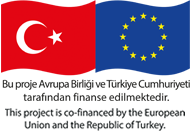The opening Meeting of the “Project on Improving Awareness and Studies on Climate Change in Istanbul” was held in December 20, 2017 at Conrad Istanbul Bosphorus Hotel. The meeting was attended by 244 people, including units and affiliates of Istanbul Metropolitan Municipality, public institutions, district municipalities, NGOs and academicians.
In the opening speeches of the meeting, Nihat MACİT, Deputy Secretary General of the Istanbul Metropolitan Municipality gave important information about this study.
Sand Art Show on Climate Change was performed and the Project on Climate Change Studies Project was introduced in the next stage of the meeting.
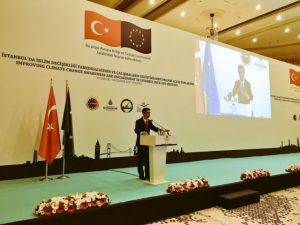
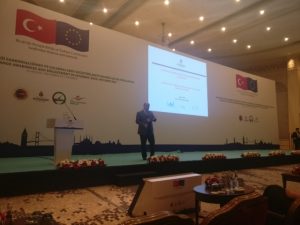
In the afternoon, a panel on “Climate Change and Local Governments” was held.
“The global urban population is expected to increase by 2.5-3 billion in the middle of the 21st century. Today, cities are responsible for two-thirds of the energy consumed in the world and also consume a quarter of the world’s natural resources. More than 70% of the globally generated energy is consumed in cities, and 80% of greenhouse gas emissions that result in global warming come from industrial plants, commercial enterprises, residences and fossil fuels used in cities. From this perspective, cities play an important role in reducing greenhouse gas emissions, which are the main cause of climate change.
In addition to fulfilling duties such as informing citizens, activating local resources and making investments to meet local needs, local governments are also exposed to pressures such as increasing population, aging infrastructure, limited funding opportunities and climate change. Increasing droughts in many parts of the world and Turkey, and consequent water shortages and air pollution are associated with climate change. In the summer of 2017, unusual weather events such as heavy rainfall and hail in Istanbul caused significant economic losses. The effects of climate change gradually spread to daily life and affect the daily life of the urban population and the economic activity of the city. These developments will have different types and severities of impact on public health, industrial production, agriculture and livestock, biodiversity and urban infrastructure in the future.
In order to maintain the economic, social and environmental balance within a reasonable range, it is aimed to limit global warming to as low as 2°C and if possible, to 1.5°C. The Paris Agreement, signed in 2015 under the roof of the UN, calls on local governments as well as national governments to become leaders in the fight against climate change. Cities have been part of the global fight against climate change since the 1980s. Local governments and their unions and platforms set ambitious targets and develop strategies to fight against climate change.
Given the accumulation of greenhouse gases present in the atmosphere, it is now difficult to reduce exposure to these effects only by reducing greenhouse gas emissions. Today, it has become a necessity for cities to take measures against the inevitable and destructive effects of climate change and to gain a more resistant and durable structure. Adapting to climate change involves complex elements for local governments as it requires a risk-based approach. Therefore, it is essential to analyze the possibilities of climate change, the vulnerable infrastructure to the climate in the city and the concrete effects of these possibilities, and to develop low-cost, local and effective measures in communication and cooperation with relevant stakeholders.
The applicability of climate action plans and low carbon plans is higher in large cities such as Istanbul due to advantages such as high population density and scale. The fact that cities take short term emission reduction measures reduces the costs they will have to endure to adapt to climate change in the medium and long term. The effectiveness of these measures depends on the specific structure and conditions of each city. In this respect, it is seen that adaptation to climate change in cities is as important as greenhouse gas reduction activities,” said Fatih HOŞOĞLU, Deputy Technical General Director of İSTAÇ A.Ş.
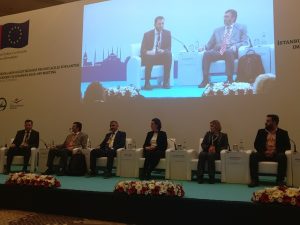
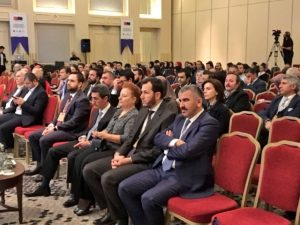
After the Q&A session on the panel, the program ended with a collective photo shoot.
